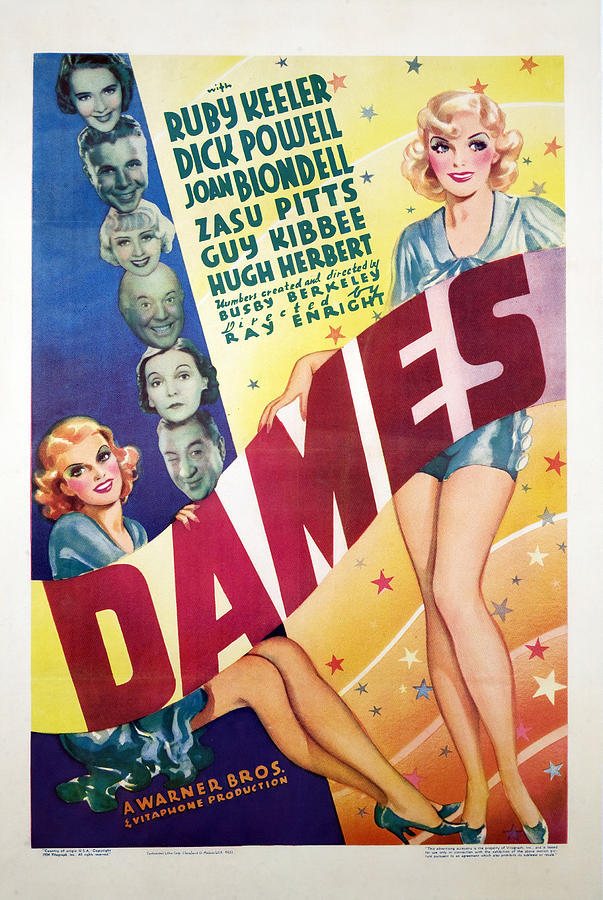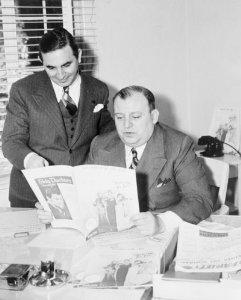“I Only Have Eyes For You” | Stories of Standards

“I Only Have Eyes For You” was composed in 1934 by Harry Warren with lyrics by Al Dubin. This tune was featured in the 1934 movie “Dames,” first as Dick Powell singing to Ruby Keeler, then as a production number in which Powell sees Keeler’s face everywhere he looks.
The song was a hit in 1959 for The Flamingos, in 1966 for The Letterman, in 1975 for Art Garfunkel, and was named the most-recorded song of the 20th Century by ASCAP.
https://www.youtube.com/watch?v=63nlhoda2MY
Tune in to First Take with Lando and Chavis – weekdays from 6-9 am MT – for Stories of Standards to hear our favorite versions of this song all week long!
Harry Warren (1893 – 1981) was born Salvatore Anthony Guaragna in Brooklyn, New York. Having taught himself to play several instruments – including piano, accordion and drums – he took a job as a drummer with the John Victor brass band as a 15-year-old.
After his stint with the band, Warren toured with several carnival shows, worked as a stagehand in a vaudeville theater, and then as a property man and piano player for Vitagraph Studios.
After serving in the Navy in WWI, Warren started writing songs. “Rose of the Rio Grande,” written in 1922 with Edgar Leslie and Ross Gorman, was his first published song.
Warren went on to write hundreds of popular songs and show tunes, three of which took Oscars: “Lullaby of Broadway,” “On the Atchison, Topeka, and the Santa Fe,” and “You’ll Never Know.” 
In addition to “I Only Have Eyes For You,” Warren wrote the popular film-featured tunes”You Must Have Been a Beautiful Baby” (1938), “Chattanooga Choo Choo” (1941) and “That’s Amore.”
He was elected into the Songwriters Hall of Fame on his 80th birthday and had more songs on the Hit Parade than Irving Berlin.
Lyricist and composer Al Dubin (1891 – 1945) ditched school to see Broadway shows, was kicked out of high school, and expelled from medical school.
He worked as a staff writer for a publishing company, served in WWI, and then delved into songwriting.
Dubin started writing for silent films in 1926, wrote “Tiptoe Through the Tulips” with Joseph Burke in 1929. His collaboration with Harry Warren in 1932 produced several hits including “Boulevard of Broken Dreams” (1933), “We’re In the Money” (1933), “Lullaby of Broadway” (1935), and “September in the Rain” (1937).
Dubin was posthumously inducted into the Songwriters Hall of Fame in 1970.
https://www.youtube.com/watch?v=ptwCK5dKV5I
Sources: jazzstandards.com; imdb.com; allmusic.com; jazzbiographies.com; songwritershalloffame.org; “Can’t Help Singin’: The American Musical on Stage and Screen” (1987) by Gerald Mast
9(MDA3NDU1Nzc2MDEzMDUxMzY3MzAwNWEzYQ004))
Become a Member
Join the growing family of people who believe that music is essential to our community. Your donation supports the work we do, the programs you count on, and the events you enjoy.
Download the App
Download KUVO's FREE app today! The KUVO Public Radio App allows you to take KUVO's music and news with you anywhere, anytime!